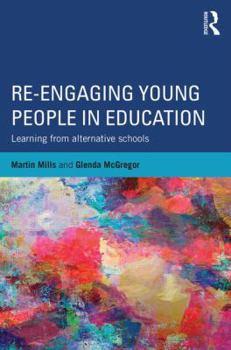Re-engaging Young People in Education: Learning from alternative schools
Many young people failed by the school system are those who face a range of social and economic challenges due to multiple forms of injustice. This book provides an insight into the educational practices that work to re-engage young people who have become disenchanted with traditional schooling. It examines the lives of students and workers who participate in education sites on the fringes of mainstream education, and includes a rich tapestry of personal experiences from those who have been failed by their schooling experiences.
The book draws upon research of international relevance conducted in a range of 'Flexible Learning Centres' and 'democratic schools' in Australia and the UK; it suggests that improving the retention levels of young people in formal education will require schooling practices to change. Students who have become disengaged from mainstream schooling do re-engage in the learning process of many alternative schools, indicating that teaching practices and forms of organisation which work in alternative sites can also provide lessons for mainstream schooling, thereby encouraging a more socially just education system.
Included in the book:contexts of contemporary schooling
who chooses flexible learning centres and why
democratic schools: students and teachers working together
teaching in 'the margins'
case studies: 'oppositional alternatives'.
All
young people have the capacity to learn and to enjoy learning; they do not 'fail school', rather, schools fail them. The teachers, workers and students who have shared their stories provide significant insights into how we might change this situation, and the book will be invaluable reading for postgraduates and researchers in the fields of education, the sociology of education, school reform and social work.




